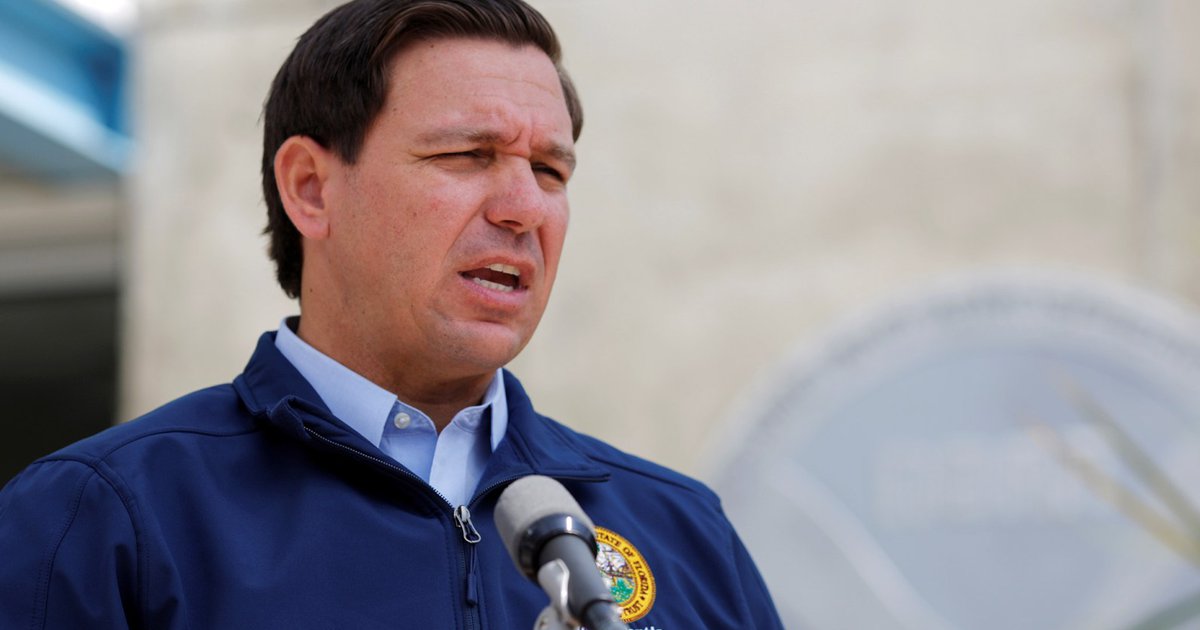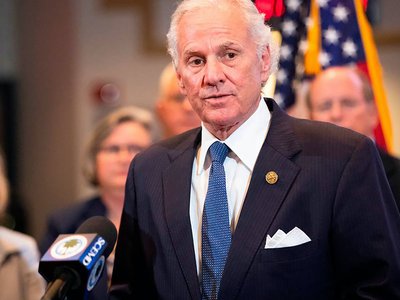Having lied so brazenly about the nature of Florida’s COVID-vaccine rollout that even the state’s Democrats felt compelled to speak up in outrage, CBS has taken a week to consider its behavior and decided that it did nothing wrong.
Well, that must be a relief.
Acknowledging the incident at the end of last night’s 60 Minutes, host Sharyn Alfonsi steered clear of such prosaic questions as whether what she had said was true or false, and chose instead to deploy an impressively pusillanimous version of the “we started a conversation” defense. “Some viewers,” Alfonsi explained, “including a retired newsman, applauded the story” she had told. Others, she said, “condemned it.” And then, without further ado, ran the titles.
By taking this approach, Alfonsi tipped her hat at one of the more annoying lines one sees trotted out when a public figure does or says something objectionable: That if they are “taking flak, then they must be over the target.” Sometimes, of course, this is true. Sometimes, though, it just means you’re being an asshole. Despite its implications to the contrary, CBS was not admonished last week because it said something controversial, it was not admonished because it stood up to power, and it was not admonished because it waded into the middle of a thorny partisan debate. It was admonished because it knowingly broadcast the lie that Governor DeSantis had used Publix to help distribute COVID-19 vaccines because of a wheel-greasing campaign donation, and because it had deliberately omitted an interview clip in which DeSantis not only explained why Publix played the role that it did, but made clear that stores other than Publix got the vaccine first.
It was clear from her performance that Alfonsi is hoping her viewers will throw up their hands in confusion and say, “Ah well, six of one, half a dozen of the other.” But, if those viewers have any self-respect, they will do no such thing. That CBS has refused to admit its mistake does not suggest that there must be something to its critique so much as it suggests that there are no incentives for it to concede error. Or, to put it more precisely: It suggests that the incentives that led CBS to broadcast such an obvious falsehood in the first instance remain operative.
Why did CBS go down to Florida, spend three months searching for a scandal, and then desperately attach itself to a fable that it would have known within hours did not check out? I’ll tell you why: because CBS began with the premise and worked backwards from there. Like far too many of their colleagues, Sharyn Alfonsi and her team at 60 Minutes are convinced that something must be rotten in Florida, and that, somehow, Governor DeSantis is getting away with it. And so, like far too many of their colleagues in the industry, they have resolved to find the missing treasure by hook or by crook. In style and in execution, what CBS did last week was similar to what people who stage fake hate crimes are doing, which is fabricating evidence in an attempt to illustrate what they believe is a “broader truth.” Like the bad cop who slips a bag of heroin into a suspected drug dealer’s pocket or the Soviet commissar who makes an example of a random kulak, CBS was determined to fire its slings and arrows and would not be deterred by anything so banal as a lack of proof.
When explaining their role within our society, journalists like to portray themselves as grizzled sticklers, with ink-stained fingers and a hard-won thousand-yard stare. “If your mother says she loves you,” such figures like to say, “check it out.” This is good advice. It’s also advice that is mostly ignored. Forget how far the network has retreated for a moment and consider that the 60 Minutes story Alfonsi is defending was an obvious disaster when it aired. This was not a segment that fell apart over time; it was a segment that never had any form. It was, from the beginning, a fraudulently constructed insinuation that relied for its kick upon the selective editing of a publicly available video and the willful rejection of testimony from the only witnesses that were available. It was, as Governor DeSantis colorfully put it at a press conference last week, a “crock.” As time has passed, and as the scale of the deception has become clear, it has only got worse. Now, the story is that a retired newsman liked it, but others didn’t, and hey, whatayagonnado?
The ugly truth here is that CBS feels no need to apologize or self-correct because CBS knows that it has the mob on its side. It gets awfully tiring saying “imagine if,” but we can all safely assume that if this corruption had been aimed at a politician or a cause that the American media liked, they would not have reported on the transgression as if the only thing that mattered was that Republicans had “pounced” on it. Critics who hope to see some resignations at CBS had better hope that someone involved in the production said something rude on the Internet in 1997, because, if they didn’t, there is no chance whatsoever of repercussions. The story has the right cast and the wrong victim — and that’s all there is to it.
Buried deep within a recent New York Times report about a false accusation of racism at Massachusetts’s Smith College is one of the most pithily fashioned examples of the way the media treat inconvenient facts that I have ever seen. “The story,” the paper explains, “highlights the tensions between a student’s deeply felt sense of personal truth and facts that are at odds with it.” Or, as we say here in realityland: The story is about a student who lied. Last week, CBS lied, too. If she wishes, Sharyn Alfonsi can smirk her way through every letter she receives between now and kingdom come. If she wishes, she can recruit every “retired newsman” in the country to her side. But it won’t change what she did — not by an iota.






